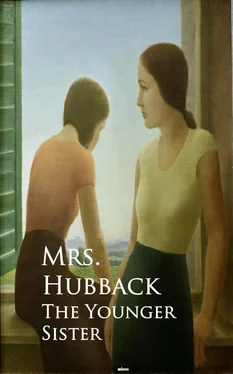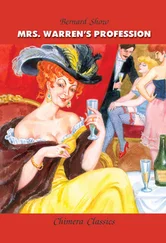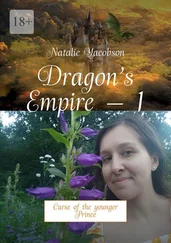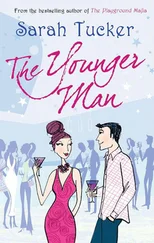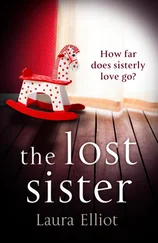1 ...7 8 9 11 12 13 ...30 "Do go! For goodness sake, do let me alone," said he, shrugging his shoulders. "You women, who think of nothing but bedizening yourselves out, fancy we have nothing else to do either. You are fine enough for us both, so pray let me alone."
Mrs. Watson covered her mortification by an affected laugh, and retreating to the sofa, cried out:
"Emma, do come, and let me have a little conversation with you, there's a good girl."
Emma coloured, but obeyed the summons; and her sister, after surveying her dress with satisfaction, seemed, for a moment, to hesitate how to begin.
"You do not dress your hair, Emma, quite
en règle
—you understand French, I suppose, now look at mine—your curls are too long—really, it's a pity, for you have pretty hair—a nice color—very much the same as mine. How odd," laughing, "that you should be so dark—like me—all your sisters quite fair—you should not put your tucker so high—mine is quite the
ton
—you see how the lace is arranged—how do you like Winston? I suppose you have not much company? I dare say, it is dull; you shall come to Croydon, as Margaret will not go back, and I will shew you a little of the world. Have you been used to much company?"
"Not much," replied Emma.
"Well, then, Croydon will be a pleasant change. I wonder at that, however, I thought your uncle was a man of wealth. My father saw so much society; and, at my uncle's, Sir Thomas, I am sure I have met the best company in London."
"Indeed," said Emma, not very well knowing what else to say.
"In consequence, I am quite accustomed to move in a gay circle—though my friends there, tell me, indeed, I am quite the Queen of Croydon. I believe I am rather looked up to—one is, you know, when one has high relations, and goes to town, and gets patterns and books from London; now, it's something quite remarkable the number of houses we visit—and the white gloves I wear out in the year—I am excessively particular about my gloves; and Margaret, whose hand is small, was quite glad to take some of mine; and, really, when she had cleaned them a little, they did very well for her.
I
seldom wear them a second time. You will come to Croydon—will you not?"
"Thank you, not this winter; you are very kind in asking me; but I have been so short a time at home."
"Oh! but you must: I assure you, you will have much the best chance in the winter, there are so many more young men in the country then. But, perhaps, you have left your heart in Shropshire. Have you any little charming love story to confide to me. Ah! you may trust me—I assure you I am very discreet—I never betrayed Margaret the least in the world."
Emma again declined the proposed visit to Croydon. Her sister-in-law looked much surprised, and not quite pleased.
"Well I should have thought our house might have some attractions for a young lady of your age; however, of course you know best, I hope you will find something more pleasing here."
Emma was spared the trouble of replying by the entrance of Margaret and Elizabeth, who were immediately engrossed by attentions to Mrs. Robert, which soothed her into complacency again. Dinner speedily followed; the early hour was a subject of comment on the part of the visitors.
"Dear me, I wonder when I dined at three o'clock before—really a little change is quite amusing, I am so glad you did not think it necessary to alter your hour for me."
"I certainly would have fixed on any hour agreeable to you, Jane," replied Miss Watson good humouredly, "but my father has so long been used to this time, that it would be very unpleasant to him to alter it. But I dare say it seems very gothic to you."
"Oh, pray do not think any apology necessary, my dear child; you know what an accommodating creature I am. There is nothing I hate half so much as having a fuss made about me. Now really in some places where I go, they will make me of so much importance, treat me so much as a visitor—in short, I may say, look up so much to me, that upon my word it is quite overpowering."
"I know you are very good-natured, to put up with our deficiencies as you do, Jane," replied Elizabeth simply and sincerely, "and no doubt they must strike you forcibly. I wish we could treat you better, but I hope you can make a good meal even at three o'clock; you see your dinner, all except a roast turkey which is coming presently."
"A roast turkey, Elizabeth!" said her sister-in-law, "after all this profusion which I see around me. Upon my word, I am ashamed of giving so much trouble; positively ashamed: such a dinner, and all for me. Really I must forbid the roast turkey—I insist on that not being brought. I cannot hear that you should be so put out of your way."
"But, my dear Jane," observed Elizabeth, "since the turkey is roasted, it may as well come in here, as remain in the kitchen. Besides, I am in hopes my father may be tempted to take some, as it is a favorite dish of his—so the roast turkey we must have."
"Well, as you please," said the other lady, "only I hope you will not expect
me
to take any of it; I must protest against partaking any of it at all."
"Do as you please, Jane," said her husband, interposing, "but because you reject the turkey, I see no reason why
I
should be deprived of it, so I must beg Elizabeth not to mind your nonsense."
The party, after leaving the dining-room, were sitting amicably in the best parlour, Robert Watson apparently asleep in an easy-chair, and his lady holding forth to her sisters-in-law about her parties, her acquaintance, and her manner of living at Croydon, when the sound of carriage wheels on the gravel under the window, followed by the house-bell, drew their attention and aroused their curiosity; who could it be? perhaps Penelope, returned suddenly from Chichester—it was just like her to come without giving notice; perhaps Sam, but he was so unlikely to come at all—nobody could decide—but the opening door seconding Jenny's voice, revealed the mystery, and shewed Tom Musgrove!
Mr. Musgrove's share of the surprise was great—quite as great as what he intended to occasion—when instead of being shewn into the little dingy sitting-room as usual, and finding the two Miss Watsons sitting, as he expected, by the melancholy light of a pair of sixes—he was ushered into the best drawing-room, graced by the uncovered chandelier and best sofa; and encountered in a blaze of wax candles, which almost dazzled him, a group of ladies dressed for company. He really hardly knew where he was, and glanced round with excessive astonishment.
"Really, Miss Watson," cried he, whilst shaking hands with her, "I must apologise for this intrusion; I did not know you had company."
"You are exceedingly welcome," replied Elizabeth, with much more good-nature than Emma approved. "It is my brother and sister: they only arrived to-day."
"Yes," said Robert, who, on surveying Tom's appearance, so elegant and finished as it appeared to him, in point of dress, felt much mortification on remembering his own unpowdered hair, and morning coat; "yes, we have not been long in the house—not long enough, you see, to change our travelling costume: but just in time to sit down to dinner."
Emma's cheeks glowed in spite of her wishes, at this speech, and she stole a glance at the wife to see how she bore it. That lady's eyes seemed merely to speak an internal triumph as she looked at her husband, as if she meant, at the first convenient opportunity, to enforce the propriety of Robert's taking her advice in future.
"Never apologise for your dress, my good sir," cried Tom, shaking hands with him; "at least, not to me, for I shall consider it a reflection on my own vile dishabille. But the fact is, I was passing this way, being on my return from Osborne Castle, where I have been spending a few days, and I could not go so near, without just stopping to enquire how Mr. Watson goes on."
Читать дальше
